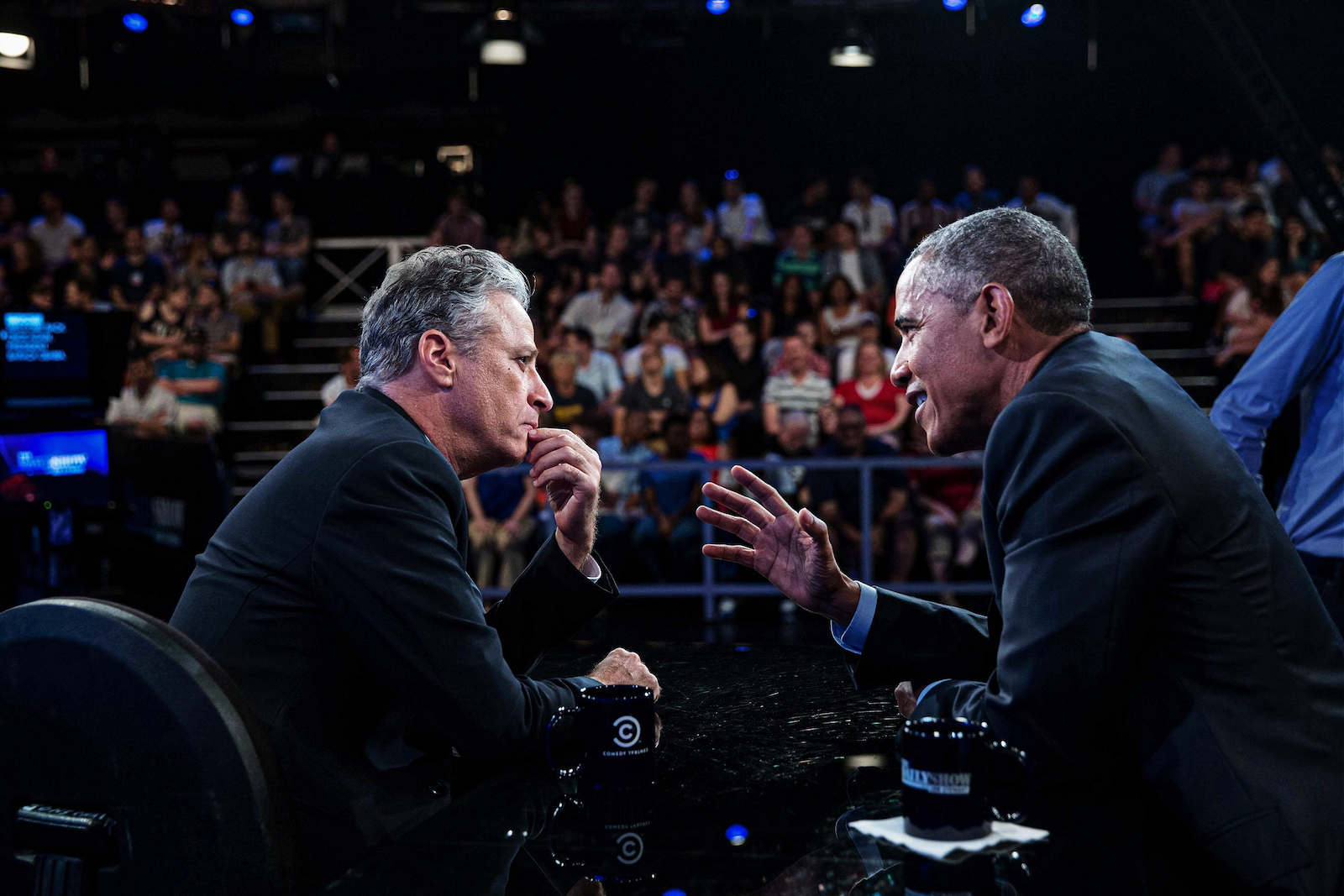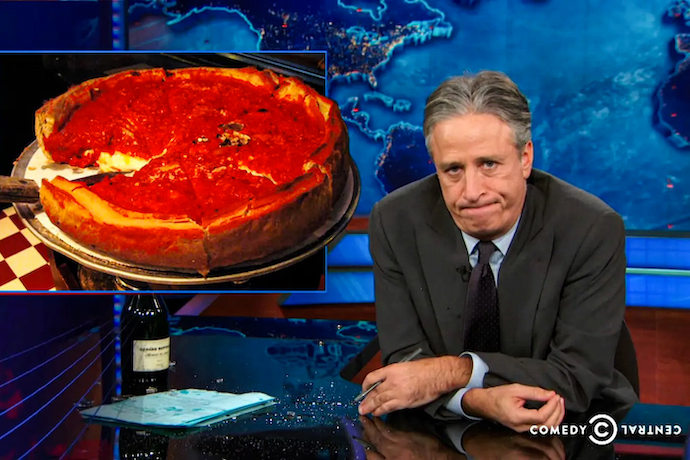
Jon Stewart’s Return Couldn’t Come Soon Enough
In the crucible of late-night satire, Comedy Central’s flagship program, The Daily Show, found itself at a crossroads. The unexpected exit of Trevor Noah in late 2022 left the iconic desk—a pulpit of political wit—vacant. The interregnum was filled with a luminous cavalcade of comedic talent: Al Franken’s incisive political satire, Wanda Sykes’ acerbic charm, Sarah Silverman’s razor-sharp insights, Marlon Wayans’ vibrant zingers, Kal Penn’s sardonic skewering, Charlamagne the God’s punchy provocations, Michelle Wolf’s fiery commentary, and Lewis Black’s cantankerous humor.
Each of these guest hosts brought a burst of energy, their unique brand of comedy lighting up the studio with ephemeral brilliance. Yet, amid the laughter, there lingered an air of anticipation—a collective yearning for a north star to navigate the satirical expanse. The quest for permanence, for a helmsman to steer the ship with a steady hand, remained the unspoken reverie of the audience. As the show danced with a parade of stars, the spotlight wasn’t merely on the humor but on the horizon, where the shape of a new era was yet to emerge.
But then, the show was disrupted by the Writers Guild of America and Screen Actors Guild strikes last year, as was most of Hollywood. Another unfortunate episode happened when Hasan Minhaj, a long-time Daily Show correspondent and former host of Patriot Act on Netflix widely seen as the frontrunner to land the hosting gig, was profiled in The New Yorker. Rather than a glowing write-up of this heir presumptive, the article highlighted Minhaj’s embellishing and downright deception in his stand-up comedy routines.
Minhaj defended himself by saying that the profile was “needlessly misleading,” but the damage had been done. It served as a major embarrassment, and word began to disseminate that Mimhaj was no longer being seriously considered for the job. All this behind-the-scenes drama began to seep into public view, as former correspondent Roy Wood Jr. mouthed “Please hire a host” in the background onstage as The Daily Show won the Emmy for Variety Talk Series in January.
The person who may not have been The Daily Show’s first host, but easily the person most associated with it, Jon Stewart, was going through a fledging enterprise of his own. After his departure from hosting The Daily Show in 2015, Stewart inked a four-year deal with HBO that yielded no results and then wrote and directed a political satire movie with Steve Carrell that nobody noticed or saw.
He did manage to host The Problem with Jon Stewart on Apple TV+. At its best, the show was informative by utilizing Stewart’s steady comedic guidance into complex issues. At worst, it was an awkward fit, feeling much more like Stewart was trying to replicate the success and format of HBO’s Last Week Tonight hosted by his former protégé John Oliver than trying to be the comedic news anchor America had fallen in love with. The show only lasted just two seasons before being canceled by Apple, likely due to the show wanting to explore controversial issues related to Israel, China, and the rise of artificial intelligence.
And then the word came: for the first time in 9 years, Jon Stewart would be returning to host The Daily Show, at least every Monday for the rest of 2024, and with options open for any time after that.
It was hard for me not to get emotional on February 12th upon seeing Stewart, doing his usual tradition of gleefully scribbling on a scrap sheet of paper before pretending to notice the camera. There was an effortlessness as he greeted the cheering audience, it was like seeing an old friend after an extended absence. He hadn’t missed a beat: he began with his trademark “Welcome to The Daily Show, my name’s Jon Stewart,” before adding, “Now, where was I?”
From the time I was old enough to be interested in politics, Jon Stewart was one of the foremost political and comedic voices in my life. I was infamous in college for never missing an episode of his iteration of The Daily Show and the show that followed, The Colbert Report. Bob Woodward came to speak at my college, and when he asked where we college kids got their news, he stated he wasn’t shocked when the loudest cheer of approval was for Jon Stewart.
When his tenure as host ended, it did feel like the end of an era. Maybe Stewart could pick up on the fact that the ground of the political world was shifting under our feet, and nothing could’ve prepared him or any of us for what was to come next. Donald Trump had already ridden down the golden escalator signifying the beginning of his ultimately successful bid for the U.S. presidency by the time Stewart departed. Even before his foray into politics, Trump was a frequent target of Stewart’s, as in one particularly famous clip where Stewart attacked the way Trump ate pizza from their hometown of New York with a fork and knife.

Despite a begrudging relationship with Bill O’Reilly and mutual appearances on each other’s shows, Stewart had no respect for most Fox News personalities, including Glenn Beck and particularly Tucker Carlson. On an appearance on Carlson’s old CNN show Crossfire in 2004, Carlson said that Stewart was “more fun on [his] show,” to which Stewart responded with “You know what’s interesting, though? You’re as a big a dick on your show as you are on any show.”
Stewart earned his bona fides during the Bush administration as a fierce critic of the war in Iraq, finding the humor in such a charged, nationalistic era with features like Gitmo, his take on Elmo who would teach about the atrocities the country was committing in Guantanamo Bay instead of his Sesame Street counterpart’s lessons about spelling and friendship. How could Stewart have possibly managed everything from private email servers to Russian election interference and “alternative truths,” from travel bans to border walls and “covfefe”? Stewart thrives in making the trivial seem like a farce; what was there to do when the entire world felt like one?
His successor, Trevor Noah, put in an admirable attempt, but it just wasn’t the same. Stephen Colbert, who had so successfully ridiculed right-wing commentary for nine years on The Colbert Report, became a much more traditional late-night host as he took the reins from David Letterman to host The Late Show starting in 2015. “Carpool Karaoke” with James Cordon, playing games with Jimmy Fallon, or Jimmy Kimmel’s little pal Guillermo getting celebrities drunk on tequila at the Oscars became the default over Stewart’s brand of sharp political comedy.
In my opinion, the closest thing we got to the classic Jon Stewart Daily Show before now was the Late Night with Seth Meyers’ segment “A Closer Look,” which airs multiple times a week and satirizes the day’s political developments. There was a “student becomes the master” arc of inevitability watching the ascendency of John Oliver and his show’s success. Oliver had briefly taken over as Daily Show host for a few weeks in 2013 so Stewart could make his directorial debut, the acclaimed docudrama Rosewater. In that brief time, Oliver impressed audiences and studio big-wigs enough that he was soon offered what became HBO’s Last Week Tonight.
Yet, we yearned for the old master to return. And thankfully he has, fittingly in the middle of the craziest presidential election year in our nation’s history.
Jon Stewart looks older now, which he acknowledges with typical self-deprecation. But there’s an easy effortlessness to how he works, a confidence that I’m not sure Noah ever displayed despite his obvious comedic talent in stand-up. Stewart’s been referencing some of the blowback that he received for jokes made at the expense of President Biden by a contingent on social media that believes any criticism of Biden enables Donald Trump. Those the least bit aware of Stewart’s output should be cognizant that he has always been, if anything, an equal-opportunity offender.
It was in watching Jon Stewart do what he had done countless times before, host an episode of The Daily Show, that it began to dawn on me how much I missed his absence from the broader cultural conversation. There he was, doing what he was best at again. The best thing about watching that golden age run of The Daily Show is that it made you laugh and unwind no matter what the challenges of the day were.
It was then that I realized that everything I and the country had encountered, from a pandemic to an insurrection to the chaotic withdrawal from Afghanistan to the surprising resilience of Ukraine, would have all felt daunting in any context, but perhaps felt more so without this specific voice to help us navigate them. Now, like the gun-slinging avenger forced out of retirement in our hour of need, this legendary comedic voice has come to meet this moment in time. I await any of his Monday monologues to come with fervent anticipation.

